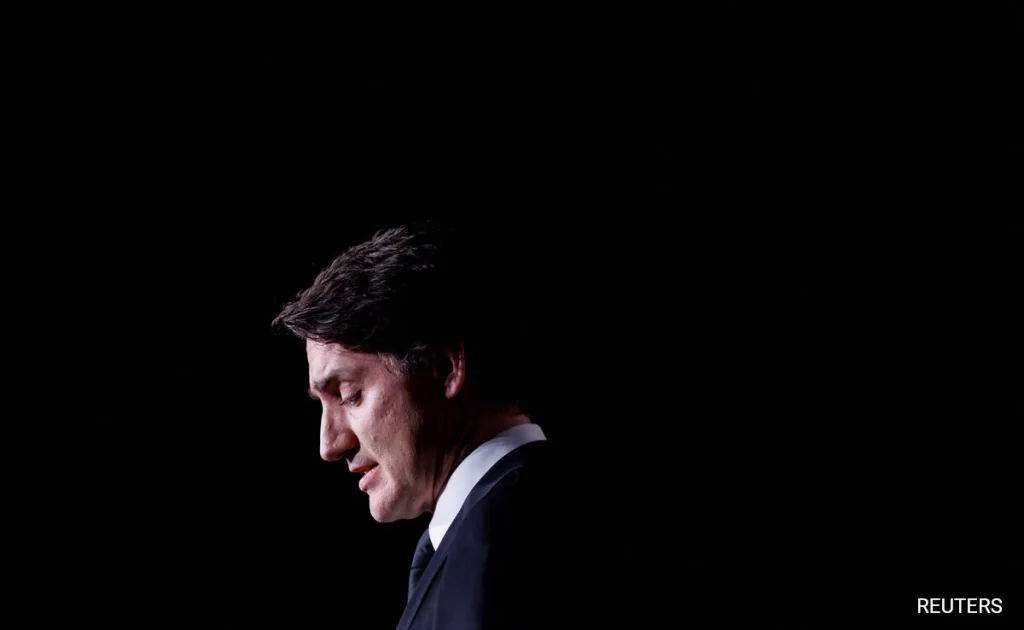Canadian Prime Minister Justin Trudeau has suffered a jolt after the Left-of-the-Centre New Democratic Party (NDP), that had helped him remain in power, withdrew support on a crucial trade union issue. The real reason is, of course, an assessment by the NDP that Trudeau’s popularity is on the wane and he is unlikely to return to power. The NDP’s leader Jagmeet Singh said elections are likely to be held much earlier than scheduled, but his party is prepared to face the electorate.
Political pressure, a lack of traction for the agreement struck between the NDP and the liberal government and Trudeau’s abrupt intervention in a railway union dispute sealed an early end to the arrangement. Singh has accused Trudeau of buckling under the pressure of private capital and jettisoning the labour force. This has left the minority government of Trudeau with no other option but to seek new alliances to stay in office until a federal vote is scheduled to be held by end-October 2025.
However, polls show the Liberals would lose badly to the official opposition right-of-centre Conservatives amid increasing voter fatigue with Trudeau, unhappiness over high prices and a housing shortage. To make matters worse for Trudeau his close aide Jeremy Broadhurst, who was set to run the Liberals’ election campaign, announced he was quitting. Political analysts say Broadhurst distanced himself from Trudeau because he did not think Trudeau could win.
The crisis had its origin last month when the Liberal government stepped in to quickly resolve a labour dispute that had ground national rail transport to a halt and stopped a chunk of international trade along with it. The decision to intervene left a sour taste in the mouth of Trudeau’s socialist partner in Parliament. Singh blasted the government for sending the union and two rail companies into binding arbitration that eventually led to his break with the Liberals.
NDP believes Trudeau and the Liberals are “too weak, too selfish and too beholden to corporate interests to stop big corporations from ripping off everyday Canadians.” Singh’s party occupied the fourth position and it had first inked the deal in spring 2022 that granted automatic support to the Liberals in Parliament. The deal was to expire in June 2025 which gave Trudeau a timeline for how long he would govern before having to go to the polls. In return, Singh extracted progressive policy gains on social programming such as prescription drug coverage for diabetes medication and contraceptives, labour protections and dental insurance for routine procedures for some groups, including seniors and children. These programmes have so far failed to help either leader politically.
Recent polling has shown Trudeau is 20 points behind his main rival Conservative Leader Pierre Poilievre, for the past year, on the back of problems plaguing incumbent governments around the world: high housing costs, battered health care systems and unmanageable gas and grocery bills.
Some of the rationale for leaving the deal is practical. Singh’s party had to make big compromises on some of the policies — it originally wanted expansive drug coverage, not a small, limited programme to start — and felt the government was moving too slowly.
In the meantime, Poilievre has campaigned aggressively against Trudeau championing concerns about the cost of living crisis and blaming the Prime Minister and “sellout Singh” for life becoming unaffordable to Canadians.
Trudeau’s government is safe for the time being, since it can only be defeated if the opposition parties unite and back a no-confidence vote. This is unlikely since NDP is too cash-strapped to go for elections immediately. It has also stated that though the deal has been scrapped to “protect the interests of the labour,” it is in no mood to facilitate the return of the Conservatives.
